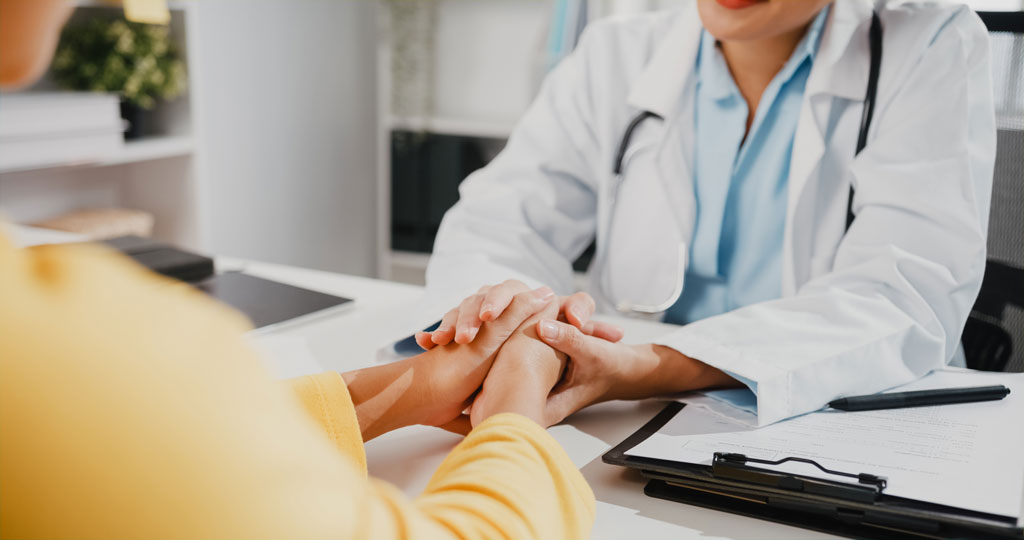What Is Dual Diagnosis?
Learn more about common dual diagnosis conditions and available treatment options for these various combinations.
What Is Dual Diagnosis?
Dual diagnosis, also referred to as co-occurring disorders, is when an individual is diagnosed with both a mental health and a substance abuse disorder. Treatment for a dual diagnosis is especially beneficial for those who don’t know which disorder developed first.
Research shows that in order for people who struggle with both disorders to recover fully, they need to receive treatment for them concurrently. This helps define and treat the root causes of any issues or disorders while making sure the individual doesn’t receive help for one without also receiving aid for the other.1

Contact Profound Treatment to Learn More
Our team is standing by to discuss treatment options with you. Your call is completely confidential and no obligation is required.
Dual Diagnosis Statistics
Co-occurring disorders happen more commonly than you may think. Almost eight million people in the United States have both types of disorders. Since it’s hard to determine which disorder develops first, this is further shown by the fact that of the over twenty million people with substance use disorders, almost 40% of them also have a concurrent mental health disorder.
Unfortunately, of those with dual diagnosis, 53% of them almost never end up getting treatment for either, which is why rehab centers and outreach programs are so beneficial.2
Common Dual Diagnosis Conditions
- Anxiety and addiction
- Depression and addiction
- Other disorders, such as addiction and PTSD, mood disorders, and bipolar disorder
Signs and Symptoms of Co-Occurring Disorders
- Withdrawal from friends and family
- Extreme behavioral changes
- Increased tolerance
- Suicidal ideation or actions
- Feeling like you need the substance to focus
- Worsening mental health conditions
- Confusion
- Insomnia
- Engaging in risky behavior
- Continuing to use the substance even though you experience negative side effects
- Spending a lot of time and money trying to obtain and use the substance
Dual Diagnosis Treatment Options
If you or a loved one are struggling with substance abuse or mental health disorders, there is help available. It’s important to make sure you look for programs that cater to both disorders in their treatment methods. Meeting with a medical professional or therapist can help you determine what kind of care you need during detox and recovery.
Residential Treatment
Residential, also commonly referred to as inpatient treatment despite slight differences, is the most intensive type of program. This is often recommended for those who have been using substances for a long period of time, or if the symptoms from either disorder are severe.
Residential treatment often offers one-to-three-month programs for detox and recovery, along with certain aftercare programs, support groups, medication-assisted therapy, and many other modalities of treatment. This type of program also offers more intensive medical supervision, as many people experience potentially dangerous detox symptoms.
Outpatient Treatment
Support Groups
These groups can take place either in inpatient treatment or through another service. They are a way that people with dual diagnosis disorders can receive help, support, and knowledge from those who have been through the same struggles they have.
Many support groups also help make sure that patients don’t become too isolated during their recovery, which may happen for those who are participating in inpatient services and are away from their normal circle of support.
What Is Self-Medication?
Many people turn towards self-medication when they start to struggle with co-occurring disorders. While this may benefit people in the short term, it can quickly lead to issues with addiction. People self-medicate with alcohol or marijuana in order to help treat their mental health disorders. However, some may find themselves turning towards more intense substances, such as cocaine or methamphetamine. Self-medication can also mean taking too much of an already prescribed medication.
Self-Medication Dangers
- Incorrect self-diagnosis
- Delays in seeking actual medical care
- Adverse side effects
- Dangerous drug interactions
- Incorrect therapy options
- Potential risk of substance abuse disorder
While using self-medication to help with dual diagnosis symptoms may seem beneficial, it’s best to reach out to a medical provider to make sure you are getting the help you need at no cost to your own health.

Dual Diagnosis at Profound
If you or a loved one are struggling with a mental health disorder, substance abuse disorder, or a combination of both, Profound is here to help. We offer many different options for dual diagnosis treatment, such as trauma-informed therapy, cognitive-behavioral therapy, dialectical behavior therapy, and medication-assisted therapy.
Our caring and supportive staff will meet with you one-on-one to create an individualized treatment program that will most effectively treat both disorders you may be struggling with. That way, we can ensure that you are receiving the care you both need and deserve, all while getting to the root causes of both disorders to treat them. We also have residential treatment, detox services, and other options.
Experience Profound Healing
Reach out to Profound today if you or your loved one need help with dual diagnosis treatment. We will be with you every step of the way during your recovery and aftercare to make sure you succeed.
Resources
- https://namimi.org/mental-illness/dual-diagnosis
- https://nida.nih.gov/research-topics/trends-statistics/infographics/comorbidity-substance-use-other-mental-disorders
- https://www.psychologytoday.com/us/conditions/co-occurring-disorders
- https://my.clevelandclinic.org/health/diseases/24426-dual-diagnosis
- https://pubmed.ncbi.nlm.nih.gov/20615179/
Useful Links
Licensed by the State Department of Health Care Services.
Profound Healing Centers License No: 191092BP Exp. 5/31/26 (current/active)
Profound Healing Centers License No: 191092AP Exp. 7/31/25 (current/active)
Profound Treatment License No: 191047CP Exp. 1/31/27 (current/active)
Profound Treatment License No: 191047AP Exp. 8/31/26 (current/active)
Profound Treatment License No: 191047EP Exp: 3/31/26 (current/active)
Profound Treatment License No: 191047DP Exp. 9/30/25 (current/active)
Click here for more information about DHCS licensing.
| Start your healing today>> | |
|---|---|
| (310) 929-9546 |







